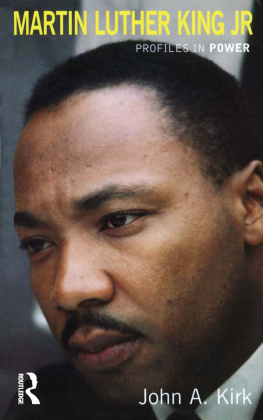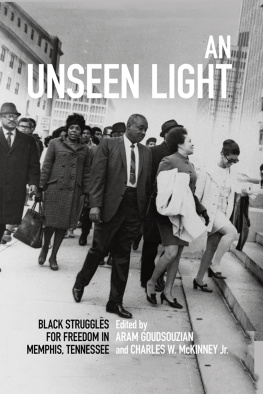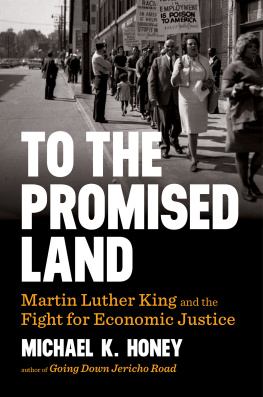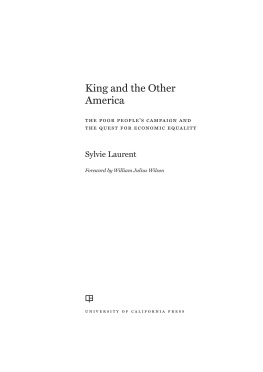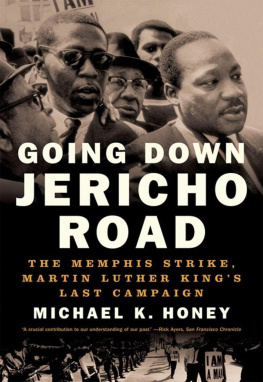Abbreviations in the Text
AFL-CIO
American Federation of LaborCongress of Industrial Organizations
AFSC
American Friends Service Committee
AGIF
American GI Forum
ANMA
Asociacin Nacional Mxico-Americana
CCCO
Coordinating Council of Community Organizations
CFM
Chicago Freedom Movement
CORE
Congress of Racial Equality
CSO
Community Service Organization
FBI
Federal Bureau of Investigation
HEW
Health, Education and Welfare Department
JOIN
Jobs Or Income Now Community Union
LADO
Latin American Defense Organization
LULAC
League of United Latin American Citizens
MAPA
Mexican American Political Association
MAYO
Mexican American Youth Organization
MFY
Mobilization for Youth
NAACP
National Association for the Advancement of Colored People
NCNP
National Conference for New Politics
NFLU
National Farm Labor Union
NIYC
National Indian Youth Council
NWRO
National Welfare Rights Organization
OEO
Office of Economic Opportunity
SCLC
Southern Christian Leadership Conference
SDS
Students for a Democratic Society
SNCC
Student Nonviolent Coordinating Committee
UAW
United Auto Workers
UFW
United Farm Workers
UFWOC
United Farm Workers Organizing Committee
UPWA
United Packinghouse Workers of America
YCCA
Young Chicanos for Community Action
Introduction
As Reies Lpez Tijerina stepped to the podium in a small but ornate room at Chicagos Palmer House hotel, the charismatic Chicano leader exuded both a supreme confidence and a genuine urgency about the state of his people in the fall of 1967. The black man is marching in the streets, Tijerina told a mix of supporters and curious observers, emphatically waving his hands. You think we should sit down and relax? The land-grant rights leader from New Mexico was in town for the first and only National Conference for New Politics convention, a raucous gathering of New Left activists considering an electoral challenge to President Lyndon Johnson primarily over the Vietnam War.
Although not explicitly a war opponent, the onetime itinerant Pentecostal preacher received an invitation after gaining notoriety for his provocative and unorthodox activism. For the previous four years, Tijerina had applied his penchant for rich rhetoric and publicity to the cause of Mexican American land-grant rights long sought by the descendants of deed owners in U.S. territory that had been Mexico until 1848. For Tijerina and his tens of thousands of followers in New Mexico and throughout the Southwest, honoring the land grants under the Treaty of Guadalupe Hidalgo, which ended the U.S.-Mexican War, was the primary way to alleviate the grinding poverty that many Mexican Americans faced in the United States more than a century later. The convention was a prime chance to spread the word to a new audience of potential allies, especially African Americans, with whom Tijerina believed his people had a shared goal. The black man has his cause and we have ours, Tijerina reminded his listeners. It is the same causejustice.
On the surface, Tijerina s statement could be interpreted as nothing more than a hopeful but largely rhetorical declaration of multiracial solidaritya desire to ally with people who had comparable histories of oppression in the United States. But Tijerina s declaration actually suggested a more complicated reality, one that prompts several questions. Exactly what does justice mean? Is this vague but powerful term enough upon which to build a sustained multiracial alliance among African Americans and Mexican Americans Tijerina s stated goal for attending a convention of New Left activists? Or is justice actually an obstacle? And how could the Chicano movement have both the same and a separate cause, to quote Tijerina , as the African American freedom struggle? Perhaps his statement simply reflects the bombast he was known for. A talented orator, Tijerina had built a reputation for galvanizing audiences with fiery, fist-pounding speeches that often privileged high-flying rhetoric over exact details, or even reason.
Yet, as Tijerina suggested that weekend in Chicago, justice could be an effective way to organize poor people precisely because it had so many definitions. The question was whether these definitions overlapped, or at least complemented, each other enough to allow meaningful coalition. For Tijerina and his followers, restoring the land grants from the nineteenth century was the quintessential definition of justice. Even a little communal land control was better than the justice (that) depends on a handout of powdered milk, Tijerina noted, referring to more traditional antipoverty approaches. But, he added, justice could take other formsones that emerged in the conventions Spanish-speaking caucus, on the plenary floor, and elsewhere, including access to bilingual and quality education, protections from police brutality and urban renewal, public jobs programs and open housing, and the right to welfare and collective bargaining. In its broadest sense, justice included a wide range of solutions to the poverty of the late 1960s that plagued nearly 12 percent of all Americans, one-third of African Americans, and one-fourth of Mexican Americans.
Tijerina had been particularly interested in a partnership with Dr. Martin Luther King Jr. The Chicano leader wanted to establish what he called a solid alliance between the Spanish-Americans and the moderate Negroes. Such a coalition was not to support the fight for land grantswe can take care of that ourselves, Tijerina added, but to find common ground among the nations two largest minority groups, Mexican Americans and African Americans.urban riots and the Vietnam War and embattled because of his stance on bothmade it clear that he had no interest in running for office and left soon after his speech. The early departure allowed Tijerina the briefest of moments to introduce himself at the airport.
Tijerina vividly recalled the short encounter as deeply symbolic. I suggested to him a coalition between the brown people and the black people. Also the Indians and poor whites, Tijerina said after Kings death. He said it was high time.
Disappointed that they could not speak at more length, Tijerina had more in-depth engagements with representatives of black power organizations, such as Ron Karenga of the culturally nationalist US Organization and Ralph Featherstone and Maria Varela of the Student Nonviolent Coordinating Committee ( SNCC ), which increasingly embraced more assertive tactics and rhetoric similar to Tijerina s. These conversations led to a series of coalitions between Tijerina , other Chicano leaders such as Rodolfo Corky Gonzales, and African American activists of many backgrounds, including King. And none would be as grand, as instructive, or as complicated as Kings campaign to help the nations poor achieve their own form of justice.


